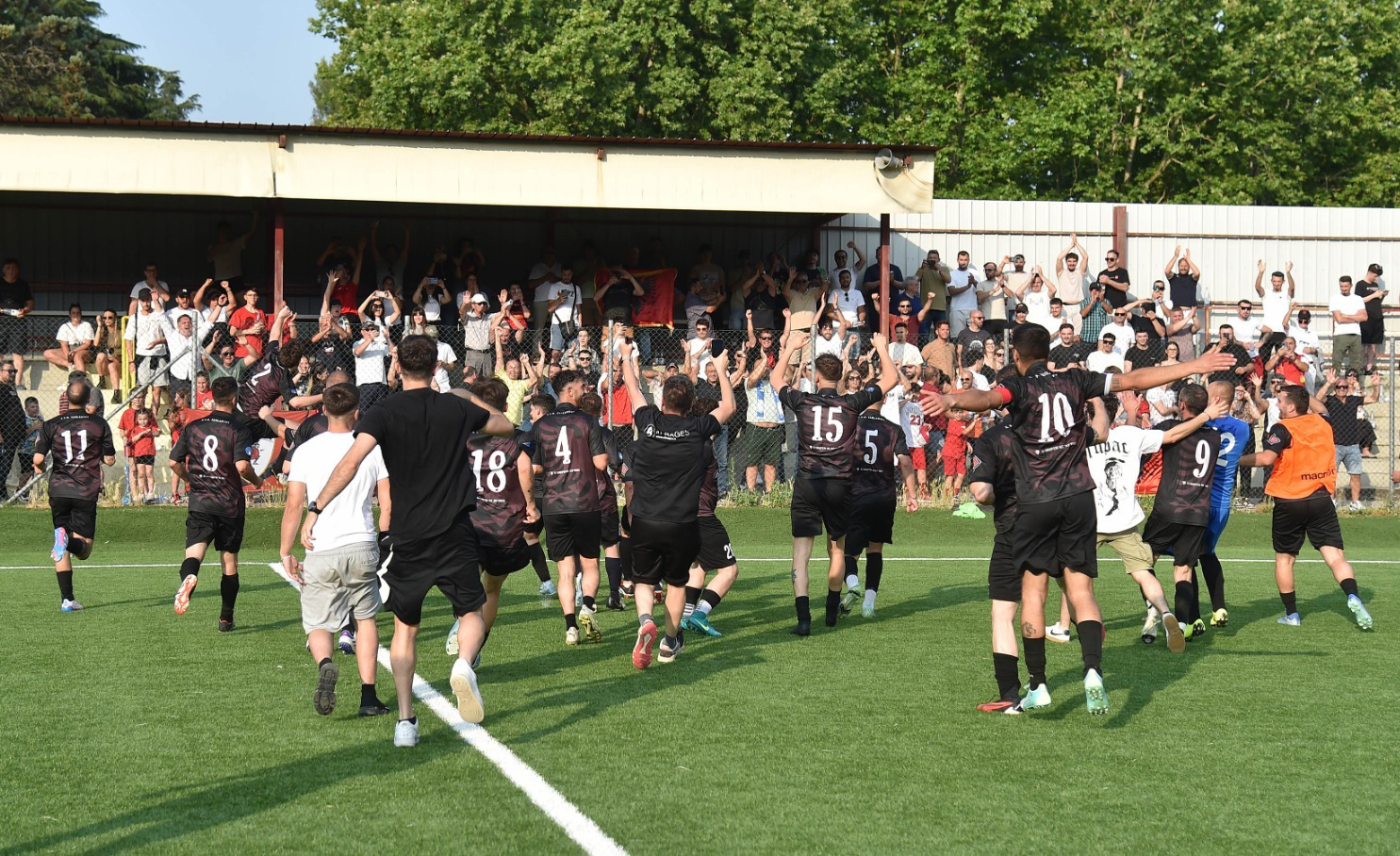Taulantet: in a football field the cultural revolution that speaks Albanian

That of Taulantet of Ponte Valleceppi (a hamlet in the municipality of Perugia) is not just the victory of a championship, it is a cultural revolution. A team that has accomplished a feat that goes far beyond the sporting result: not only the conquest of the first Umbrian category, but the symbol of a revenge for a people who arrived on our shores in the 90s, after the transition from communism to capitalism. A story of identity and belonging, which speaks of those who, in these years, have contributed to building Italy.
A team made up entirely of boys of Albanian origin, who in two years went from their debut in the Figc championships to a playoff victory against Virtus Foligno, dragged by an entire community that rallied around the ball as if it were a flag. All the boys speak perfect Italian, many even use the Perugian dialect, but a single identity unites them: the awareness of being descendants of Skanderbeg, the national hero who united the Albanian principalities by leading the resistance against the Ottoman advance in Europe.

Founded in 2012 in the amateur championships, Taulantet was born as an integration project for young Albanians living in Umbria. The name recalls its roots: the Taulanti, an ancient Illyrian tribe. No other team in Italy, currently in the FIGC championships (Italian Football Federation), can boast a roster entirely composed of Albanian players.
When president Artan Zogu, a construction entrepreneur, decides to make the leap to the amateurs together with sports director Fatbardh Hoxha, he entrusts the technical guidance to the expert "Tuscan" Roberto Gallastroni, a seventy-year-old with a past in professional football, the recent UEFA D graduate Mirko Loche, and the athletic trainer Gabriele Benda.
"In a team that speaks Albanian, my Sardinian accent seemed almost out of place," says Loche. "But no. It is right there, among the notes of a collective identity, that I found my roots, my identity side. I too am a man who came from the sea, with a suitcase full of dreams. In this project I saw that sense of revenge of those who come from far away."

"I have lived in Umbria for 25 years - continues Loche - a wonderful land that I will always be grateful for. I came here to study and I stayed here by chance. Umbria is a multi-ethnic region, and during my studies I met Dritan. Albanian from Tirana, with him I immediately found a great cultural affinity, in addition to this the word loyalty distinguished us both. And when they asked me to be the assistant coach of a team composed entirely of boys of Albanian origin, I immediately thought of him. I said yes without thinking too much. Because this story spoke to me. He resembled me".
With his genuine energy, Loche brought a particular balance to the project: «I entered on tiptoe, but with an open heart. I found brothers. I found my story, only with another passport. I too, like them, arrived in Umbria with a lot to prove and little to show. Understanding them was natural. I was more than a support on the field: I was a point of reference in the locker room. A bridge between the coasts of Durazzo and those of Puglia, between the tactical rigor of Gallastroni and the emotion of a group that plays with heart. Even if Dritan has returned home, and in these years we rarely see each other, I have received a lot from this community. Giving back, through football, was natural. It was right».
Captain Marjo Seiti also confirms this with a joke that says it all about the silent but decisive role of the assistant coach: «Then there's him... a madman, an older brother. He always put his heart into it, he argued, he insulted everyone, he always believed in us. And I think we took away some satisfaction from him».
After a season of battles, sacrifices and dreams chased under the sun and under the rain, Taulantet is preparing for the next year. Ready to continue its journey, carrying around Umbria a ball that speaks of integration, identity and pride of a people who, through sport, have found a new voice.
With an annual subscription you can browse more than 50 issues of our magazine, from January 2020 to today: each issue a story that is always current. In addition to all the extra content such as thematic newsletters, podcasts, infographics and insights.
Vita.it





